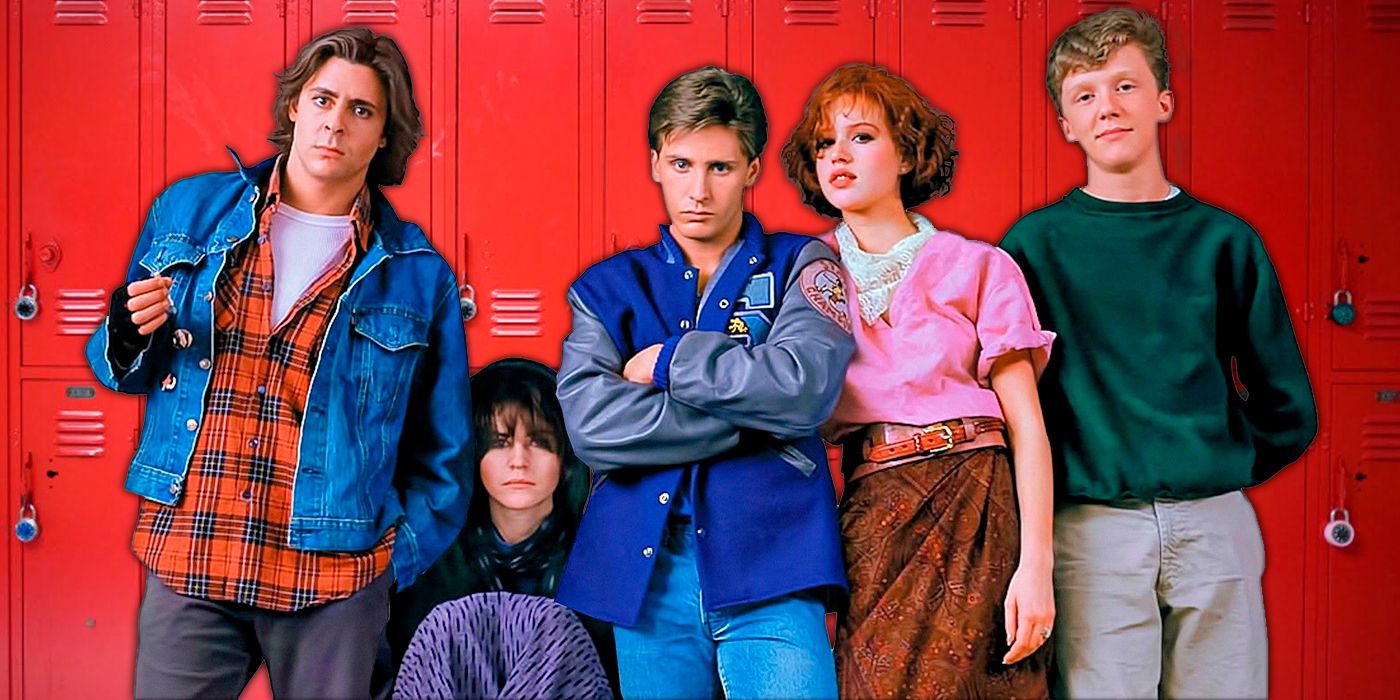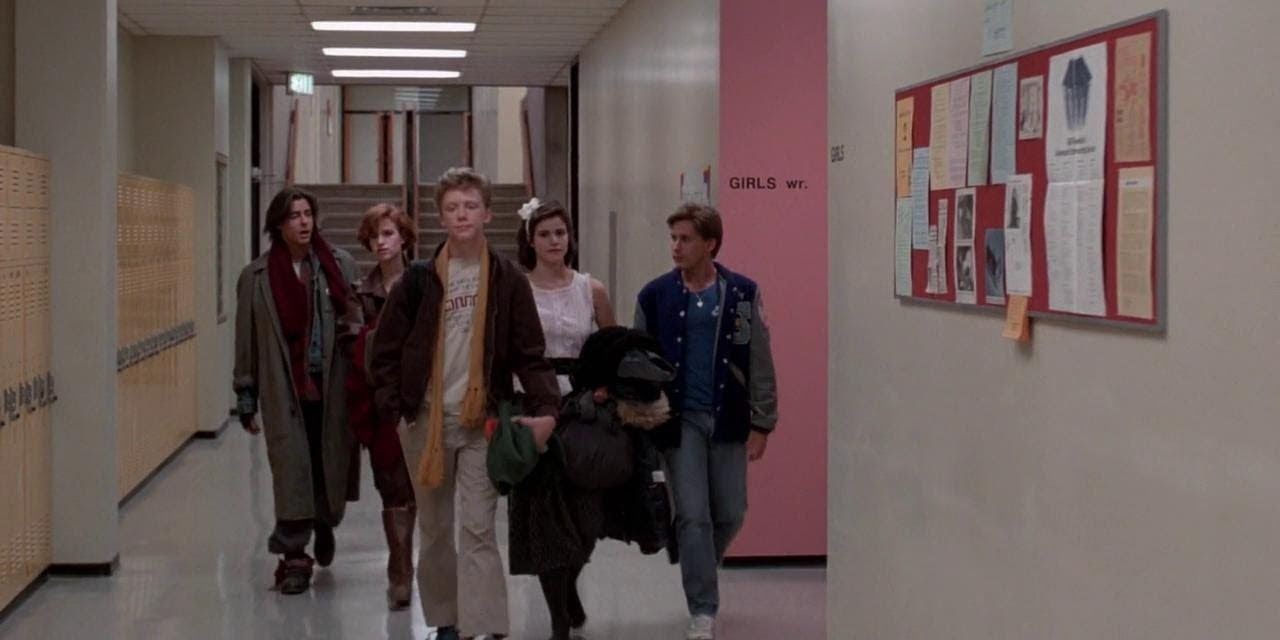There are few film directors as influential in a single genre as John Hughes. Over 30 years after his biggest films were released, the writer/director remains a looming figure in any exploration of youth and teenage transgression, with films like Pretty in Pink, Sixteen Candles, Ferris Bueller's Day Off and, especially, The Breakfast Club remaining cultural touchstones.
But what most audiences might not know is there was almost a second story for the latter film. The Breakfast Club nearly got a sequel, which makes sense, given the massive financial and cultural success of the original. But in the long run, it's better that the film didn't sacrifice its poignant ending in pursuit of reuniting the characters.
The original Breakfast Club was released in 1985. Directed and written by Hughes, the film focuses on a Saturday session of high school detention and the five differing students that end up together as a result -- the jock Andrew (Emilio Estevez), the preppy Claire (Molly Ringwald), the nerdy Brian (Anthony Michael Hall), the bizarre Allison (Ally Sheedy), and the troublemaker John (Judd Nelson). Despite their very different home lives, high school cliques, and prospective futures, the five students find a way to empathize with one another and bond -- forming the self-titled "Breakfast Club" and becoming friends for a day despite the bittersweet acknowledgment that their newfound connections are likely to only last until the following Monday morning.
The movie became a major hit upon release and still remains a highly influential exploration of teenagers even over 30 years after its release. The stars of the film -- later part of a generation of performers nicknamed the Brat Pack -- went on to other projects, but there was actually one point when they might have reprised their parts. During an interview with The Independent, Hall revealed that Hughes -- who passed away in 2009 -- had once conceived of a sequel to The Breakfast Club. During the press tour for Halloween Kills, Hall recalled a conversation with Hughes where the writer/director pitched a sequel that would pick up with the same characters but over a decade later, while they were in their 20s or 30s.
This discussion apparently extended past Hall, with Molly Ringwald noting in an interview with The Daily Beast that she'd once been told the film could receive a sequel -- and that a script had even been drafted but never produced for the film. It's an interesting thing to consider, as the film series could have continued to explore the cast as they grew up -- reflecting how much they changed (or even remained the same) as opposed to their younger selves. On the one hand, it's an enticing prospect to consider, especially once the lasting cultural impact of The Breakfast Club is taken into account. But Hughes -- who shifted more into family-targeted fare like Home Alone, Beethoven, and Flubber as he got older -- never did return to the characters.
That might also be quietly a good thing, as a return to The Breakfast Club might have undercut its lasting bittersweet edge. One of the film's biggest emotional throughlines is the acknowledgment that these teenagers might strive to be free of the world around them and the expectations it places on them, but they ultimately can't. No amount of sympathetic backstory is going to fix John's home life or appease the expectations of Andrew and Brian's parents. Even the romances that occur in the film are likely to be short-lived, something John (who was almost played by John Cusack) uses to mock Claire at one point. A return to the characters -- or a revelation that they did overcome their own expectations and those others to remain close -- would have seriously defanged the mundane but affecting tragedy at the heart of the film. While Breakfast Club could have easily gotten a sequel, it's a good thing that, in the long run, it didn't get one.



